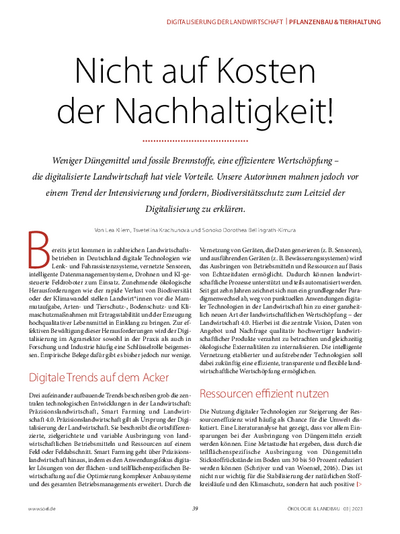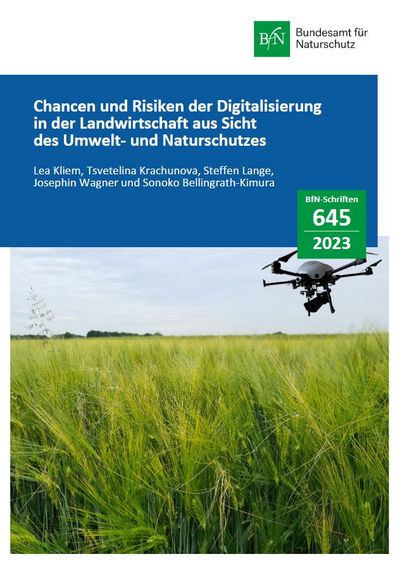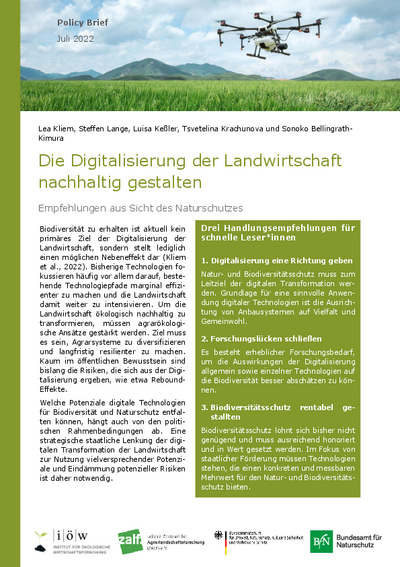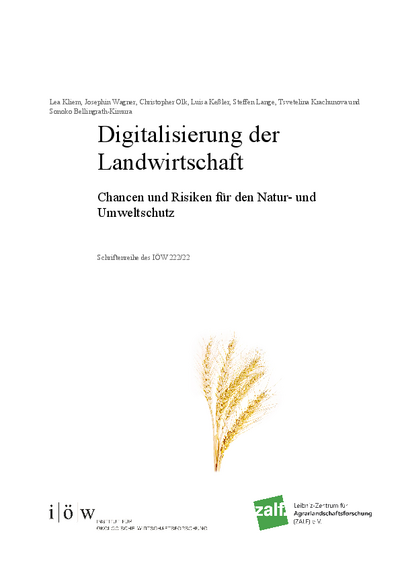Opportunities and Risks of Digitization in Agriculture from the Perspective of Natural and Environmental Protection
Agriculture is facing immense ecological challenges such as the loss of biodiversity loss and climate change. Is the use of digital technologies in crop production a solution to these challenges? These have long been used in the fields, and precision farming and smart farming are becoming standard agricultural practice.
The project investigates the relationship between digitization and nature conservation and environmental protection in agriculture - both in general and in detail for particularly relevant technologies.
Already today, steering and driver assistance systems, networked (soil) sensors or intelligent data management systems are used on every second farm. Drone based image recognition systems, GPS-controlled agricultural robots or sensors that transmit animal health data from livestock, for example, are also used.
For the environment, this offers both opportunities and risks: On the one hand, the technologies can help to reduce energy and water consumption, fertilizers, chemical use and greenhouse gas emissions and protect biodiversity. Also, the use of data for this purpose could be expanded to promote biodiversity. On the other hand, digital technologies can contribute to further intensify agricultural systems, thus hamper a sustainability-oriented transformation of agriculture. Production and application of digital technologies require energy and materials. Higher efficiency can lead to rebound effects, which would counteract savings.
On the basis of the studies, policy measures are discussed with stakeholders to support opportunities and minimize risks.
IÖW Project Team
- Dr. Steffen Lange
- Josephin Wagner







